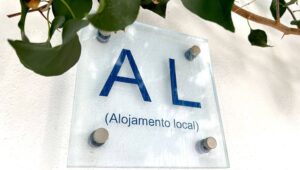The most recent change in the legal regime for the operation of Local Accommodation (Alojamento Local, or simply known as AL) establishments was introduced by Decree-Law 76/2024, of October 23. The main changes introduced are the following:
Measures of the “Mais Habitação” Program (Law 56/2023, of October 6)
The following were revoked:
- The decision to suspend new registrations of local accommodation in the form of apartments and accommodation establishments integrated into an independent fraction of a building;
- The validity of local accommodation registrations for five years (which means that the registrations no longer have an expiration date);
- There will be no reassessment of registers in 2030;
- The requirement for authorization from the condominium to operate local accommodation in buildings on horizontal property, except in the “hostel” category;
- The specific rules applicable to seasonal use (for a period not exceeding 120 days);
- The extraordinary contribution on local accommodation (CEAL).
Change of registration ownership
One of the most impactful new developments is the change in the nature of the registration of local accommodation establishments, which is no longer personal and non-transferable. Consequently, this registration, which constitutes a title for opening the establishment to the public, no longer expires with the (i) transfer of ownership of the registration, cessation of exploration, lease or other form of change in ownership of the exploration; nor with the (ii) transfer of any part of the share capital of the legal entity holding the registration.
In any case, within the scope of the power attributed to municipalities to regulate the activity of local accommodation, they will be able to establish limits for the transferability of new registration in the “housing” and “apartment” categories in containment areas (areas with too many AL establishments).
Areas of sustainable growth
Sustainable growth areas are created, in which special monitoring and follow-up measures are justified, expanding the legal tools assigned to municipalities to accommodate AL establishments in a sustainable and strategic way, meeting the specific characteristics of the territories through own regulation.
Local Accommodation “Provedor”
The role of the local accommodation “Provedor” (ombudsman) is created with the aim of supporting municipalities in managing disputes between residents, owners of local accommodation establishments and condominium owners or third parties with opposing interests.
Local Accommodation in autonomous units
Even if the title deed of the horizontal property or the condominium regulations that form an integral part thereof do not prohibit the exercise of local accommodation activities, the following resolutions may be approved:
1) Creation or amendment of the condominium regulations, with the aim of prohibiting the exercise of local accommodation activities in the building: it must be approved by a majority representing two thirds of the building’s percentage;
2) Opposition to the exercise of local accommodation activities in a given autonomous fraction: it must be substantiated and approved by more than half of the building’s percentage and based on the repeated and proven practice of acts that disturb the normal use of the building, or acts that cause discomfort and affect the rest of the condominium residents. This decision may lead to the cancellation of the registration of the local accommodation establishment, when requested to the mayor, who, prior to his decision, may invite the parties to reach an agreement, with or without the accompaniment of the local accommodation “Provedor”, which allows the filing of the registration cancellation procedure. However, this procedure must be completed within a maximum period of 60 days.
Deadline for opposition to registration
The deadline for opposing the registration of new local accommodation establishments by municipalities is now 60 days from the presentation of the prior communication or, in the case of requests for the operation of local accommodation in containment areas, 90 days.
Information published in the National Register of Local Accommodation (RNAL)
The information that must be disclosed in the RNAL is clarified, which now includes the validity date of the mandatory insurance, the lack or invalidity of which is grounds for cancellation of the registration by the competent municipality.
Uses compatible with local accommodation
The uses of buildings compatible with the operation of local accommodation were clarified in the law.
By Dr Eduardo Serra Jorge
|| features@algarveresident.com
Dr Eduardo Serra Jorge is founding member, senior partner and CEO of lawyers firm Eduardo Serra Jorge & Maria José Garcia – Sociedade de Advogados, R.L., created in 1987.
In his column, he addresses legal issues affecting foreign residents in Portugal.
Faro office at Gaveto das Ruas Pedro Nunes e José de Matos, 5 R/C
289 829 326




















